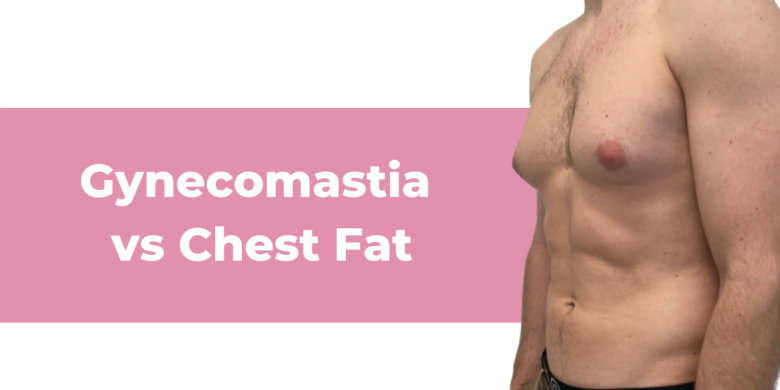
You will burn more calories when exercising than usual. EPOC is the term for this post-exercise effect. This effect can last from 2 to 10 hours. While the amount of calories burnt depends on the type of exercise, an intense workout can produce the same effect as a moderately intense one. A hard, two-hour run may burn forty to sixty calories. A moderately slow jog will not cause muscle fatigue.
HIIT increases calories burned for up 24 hours
HIIT can stimulate your body’s fat reduction mechanisms. HIIT training can boost your metabolism and burn calories for as long as 24 hours after a workout. Colorado State University used a metabolic chamber for carbon dioxide and oxygen measurement to determine the impact of HIIT in calorie loss. They found that HIIT increased post workout calorie burn by as high as 24 percent
HIIT includes sprinting and running, as well as cycling, running, swimming, and jumping rope. Some workouts also include plyometrics, which increases your heart rate. You don't need any equipment to do HIIT. Push your heart to its maximum speed rather than to its limit. You will see results that last for a long time if you push your heart to its limits.

Weightlifting increases calorie burn for up to 3 hours
Many people choose weightlifting as their daily exercise. This form of exercise increases your metabolism, which means you burn more calories during and after your workout. You need to lift heavier weights, and you should push yourself to gain muscle mass. This will make weightlifting more productive. Two hormones are released when you lift heavy weights: cortisol (the stress hormone) and human growth hormone (the hormone). These hormones aid in weight loss, even when you're tired.
For a woman of average build, a 30-minute weight training session can increase calories by as much as 180 calories. These numbers are based on the Harvard medical school's list of recommended exercises. Your body weight, your intensity of training, and the movements you use will all affect the actual calories burned. Bicep curls burn less calories than compound movements like deadlifts and bench presses.
Exercise causes excess post-exercise oxygen consumption (EPOC)
Excessive post exercise oxygen consumption refers to the amount of energy your body consumes after intense workouts. This process can last from three to 72 hour and the amount you use depends on how intense your exercise is. Excessive post-exercise Oxygen Consumption is also known by afterburn. This refers to using fuel to bring your body back into its natural state after a workout.
After working out, the afterburn is a natural phenomenon. It is your body's way for you to recharge your energy stores. The afterburn effect may last for anywhere from 15 to 48 hours. An increase in caloric consumption can lead to an excess of post-exercise ox. The intensity and duration of exercise are major factors in excess post-exercise oxygen intake.

Resistance training improves calorie loss during and following a workout
A study conducted in 2013 looked at the changes in molecular structures in fat cells after resistance-training workouts. Researchers have been focusing on the health and well-being of muscle cells for years. But, recently, their attention has shifted to fat. Researchers have suggested that these two types of tissue may be engaged in a conversation after a workout. However, it's difficult to predict which type of exercise will burn the most calories.
Intensity of resistance-training sessions directly influences the number of calories burned. A higher intensity resistance training session will result in a greater calorie burning during and after the workout. This is because resistance-training exercises test the muscles and the aerobic system. Two sets of supersets may be enough to burn around eight to nine calories each minute for a man doing weight-lifting exercises. In addition, a male who performed two supersets of five-rep exercises, alternating between 60-180 seconds of cardio, burns more than six calories per minute. Circuit training is another option, which alternates resistance training with cardio. Similar results can be expected: Resistance-training increases caloric intake before, during, after, and between workouts.
FAQ
Is there a difference between intermittent fasting, calorie restriction, and intermittent fasting?
Calorie restriction is when you eat less than your body needs. Intermittent fasting differs from other types of intermittent fasting in that it does not restrict calories. Intermittent fasting focuses more on eating fewer calories every day.
Intermittent fasting is more effective because it allows you to enjoy foods you love without feeling guilty.
Both methods have pros and cons. Therefore, you need to decide whether you prefer one method over another.
How often are people quick?
The majority of people who follow the ketogenic diet fast only once a week. Others fast twice per semaine. Others fast three-times per week.
There are many lengths to fasting. Some people fasted for 24 hours and others for 48 hours.
Some people even go longer than 72 hours. But, such extreme cases are rare.
Can I eat fruit while on intermittent fasting
Fruits are great for you. They are rich sources of vitamins, minerals. Fiber, antioxidants, as well other nutrients. They also contain sugar, which can lead to blood glucose levels rising. This can cause insulin resistance and weight gain. You can lose weight by following an IF diet. Make sure to eat low glycemic fruits like apples, pears and berries.
What can I drink during intermittent fasting in the morning?
Water should be consumed first thing in the AM. You feel fuller faster and have more energy throughout the day. If you want to add flavor, try adding lemon juice or cucumber slices.
Does intermittent fasting affect my sleep?
Yes, intermittent fasting does affect your sleep. If you skip meals, your hunger hormones will increase. You might find yourself awakened at night due to your hunger hormones.
Experts recommend skipping breakfast. Instead, experts suggest eating a light snack just before bed.
If you are still hungry after your snack, you can eat a small dinner right before you go to bed.
However, you should not overeat. If you do this, you might gain weight instead of losing it.
How long does it usually take to lose weight
Weight loss takes time. It usually takes six months for you to lose 10%.
Remember that you should not expect to lose weight in a matter of hours. Your body takes time to adapt to new diets.
This means that your diet needs to be slowly changed over several days, or even weeks.
Fad diets don't work and you should get off them. Instead, change your daily routine.
Consider, for instance, that you often eat unhealthy snacks late at the night. You need to reduce this behavior.
Instead, eat healthier meals at night. This will ensure that you don't snack late at night.
You should also drink plenty of water during the day. Water helps keep your body hydrated, and prevents you from becoming dehydrated. Dehydration causes you to feel fatigued and slow.
It is important to drink plenty of water throughout each day to stay energized.
Doing things that are relaxing can help you reduce stress. You can spend time with family members, for example.
You can also listen to music or read books.
These activities can help you relax from stressful situations. They will also improve your mood, self-esteem, and overall well-being.
It is essential to think about your health before you lose weight.
Your physical fitness is an indicator of overall health. Regular exercise and proper nutrition are key to getting fit.
Statistics
- It's estimated that half of all American adults attempt to lose weight every year (1Trusted (healthline.com)
- One 6-month study showed that simply doing 11 minutes of strength-based exercises 3 times per week resulted in a 7.4% increase in metabolic rate, on average. (healthline.com)
- Among women, the increase in metabolic rate was nearly 4%, or 50 more calories per day (14Trusted Source (healthline.com)
- According to Harvard Health, it's estimated that a 155-pound (70-kg) person burns around 167 calories per 30 minutes of walking at a moderate pace of 4 mph (6.4 km/h) (5). (healthline.com)
External Links
How To
How to exercise to lose weight
Exercise is one of the best ways to lose weight. Many people don’t know how exercise should be done. Cardio exercises should include running, biking, swimming, walking, etc. and strength training exercises like lifting weights, pulling-ups or pushing ups, squats and lunges. Combining these types of exercises is the best way to lose weight. Find friends who are open to joining you on your exercise journey. You can exercise at a gym or simply walk around the block. Whatever type of activity you choose, make sure that you stick with it consistently. It's easy for things to go wrong when you start exercising. Keep at it!